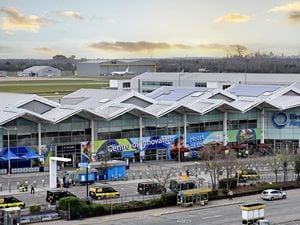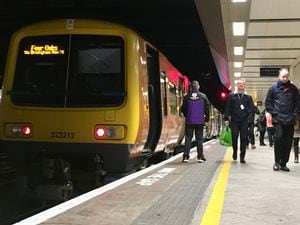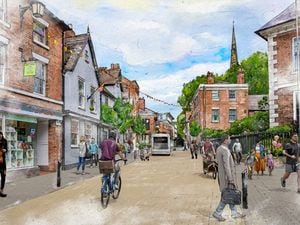Building to a budget – the toughest job around
For HS2, the price began at £32 billion and has now topped £100 billion.

In the case of Tottenham Hotspurs new stadium, the ambitious £400 million plans, complete with bespoke cheese room and micro-brewery, anded up as a fromage-free edifice which, spectacular as it is, cost £850 million.
Then there’s the Midlands’ “super-hospital”, which was originally expected to open last year for £350 million, and has now been nudged back to 2022 at a cost of £475 million.
It seems that it is just impossible to keep large building projects within budget.
The collapse of Wolverhampton-based Carillion two years ago was also partly down to some of its numerous public sector contracts, including the Midland Metropolitan Hospital in Smethwick and the Royal Liverpool Hospital, going massively over budget and facing repeated delays. It was also involved in HS2 contracts, and its collapse had a knock-on effect for a number of smaller contractors.
In the case of the super hospital, the price was first mooted to be in the region of £350 million.
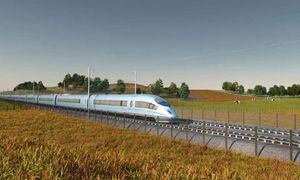
But after an initial six-month delay due to engineering issues, Carillion’s collapse saw work stop altogether – and now the timescale and costs are inching higher.
There are many factors behind the failure to keep budgets for such huge projects under firm control.
One common factor in many of the failed, or massively over budget, schemes is initial unrealistic timetables being set for their delivery – which go on to have a knock-on effect for the cost of the work.
As projects are delayed inflation keeps pushing up the costs of materials, wages of the workforce and the price of land that may need to be bought.
But it’s not the only problem. Poor project management, continual amendments to plans and the lack of enough skilled workers can all dramatically push up labour costs as companies delivering projects have to pay well over the odds to attract the people they need to deliver them.
Corin Crane, chief executive of the Black Country Chamber of Commerce, believes that costs of major infrastructure projects could be brought down with more effort to procure services and materials locally.

“The rising costs of public sector projects is a big issue for us,” he says.
“On a number of levels spiralling costs are difficult to cope with. Sometimes projects can take a long time to bring to fruition with costs of construction, materials and the workforce going up year on year.
“Projects can also take two to three years before funding is agreed and that results in a mismatch between the original estimate and the final price that it is going to cost.
“If more work was done on local procurement it would also deliver benefits to the local economy including creating employment and giving local businesses a chance to win contracts. The public sector is not very good at that sometimes.”
Mr Crane says that the Government’s Treasury Green Book, which set out Government guidance on the appraisal of public investments, often favoured projects in the South East and London and failed to look at the wider economic benefit of projects to areas like the West Midlands.
“There is a need for a refreshed way of looking at how projects are assessed to help the West Midlands,” he adds.
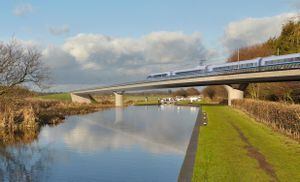
Just this week the deputy chairman of the review into HS2 commissioned by the Government launched a scathing attack on the report saying Parliament was “seriously misled”over the costs.
Lord Berkeley said he could not support its conclusions or recommendations which include recommending that the high-speed railway should be built in full despite soaring costs.
He has suggested that the review should accept the cost figure of £103bn from consultant Michael Byng, rather than HS2 Ltd’s latest estimate of £88bn.
The director of Midlands Connect Maria Machancoses has called for HS2 to be delivered in full despite the rising costs as the best way to level up the country and deliver its potential.
Midlands Connect has consistently said HS2 is the best way to add extra rail capacity for the Midlands and the north, despite any delays and rising costs, because it will support an enormous amount of economic growth, job creation, increased productivity, swathes of much-needed regeneration and deliver significant environmental benefits.
Professor Paul Forrest, director of the Shrewsbury-based West Midlands Economic Forum, believes a key problem for public sector contracts is a lack of project management skills.

“Both in-house and outsourced projects lack intellectual capacity to do project management and have to bring it in from outside at high cost,” Prof Forrest says.
“In public sector contracts like HS2 in the UK professional services costs as a proportion of total budget run at an average of 18 per cent compared to France and Germany where for high speed rail projects it is four per cent.”
He also believes that there is a need for national standards on charging for professional services to prevent overcharging.
“More transparency is needed across all public sector contracts as part of a reform of procurement,” he added.

